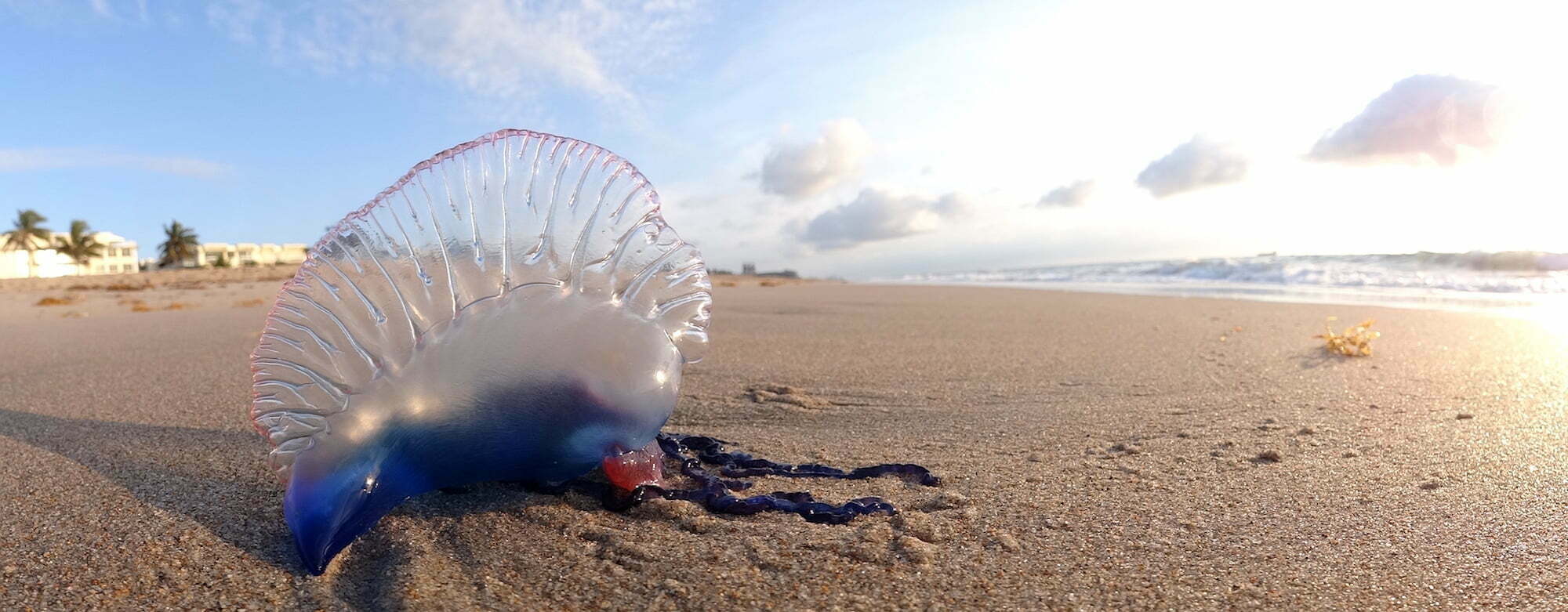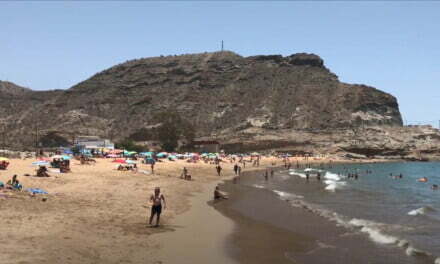Spanish language press have reported bathers warning this week of ‘Portuguese man-of-war’ sightings on the north eastern beaches of Gran Canaria, particularly in the municipalities of Telde and Las Palmas de Gran Canaria.
Similar warnings were being issued from Fuerteventura earlier this week, with reported sightings on Monday. A sting from this species of “jellyfish” is known to be one of the most poisonous and painful, they can cause fever, headache, inflammation, nausea, vomiting among other potential symptoms. It is very important to avoid contact with these creatures, and to react urgently should unintentional contact result in a sting.
The sting of a Portuguese man-of-war can be deadly for a child, and for any adult with weakened health. For a person of normal weight and health, it should not be extremely harmful and its effects would wear off in a few hours.
The stings are an automatic defence mechanism when the collective of creatures feels threatened. With more than a million stinging elements on each tentacle, they cause an allergic reaction in the victim, more often a bather.
Stinging and itching in the area of contact is the mildest symptom. The sting can cause severe pain, vomiting and fever, nausea and may even be fatal. Its poison is very dangerous and remains active even when the specimen has been beached. For this reason it is essential never to touch it.
If a sting occurs than the first thing is to do is to neutralise the poison, by removing the remains of the tentacles from the skin. Depending on where you are struck, and depending on the distance to a first-aid post or a pharmacy, you can try to wash the area with alcohol or salt water. Never use fresh water because it intensifies the effects. It is also not recommended to use vinegar, something that can work with common jellyfish. It is not advisable to apply cold water, but preferably hot and then use a cortisone cream.










